As the world pivots towards adopting electric vehicles to reduce carbon emissions in the automobile industry, it’s imperative not to overlook another viable option with immense potential of taking zero-emission vehicles to new heights. We’re talking about hydrogen-powered vehicles, which have not yet received the same level of recognition as their counterpart electric vehicles. While millions of EVs have already been sold, hydrogen vehicles are still in their early stages of commercialization and have yet to attain significant market penetration. This can be attributed to a number of factors, including scarcity of refueling stations, technological adaptation challenges, and production hurdles.
However, dare we say, the future of hydrogen fuel cell vehicles seems bright, as numerous established automakers such as BMW, Toyota, Hyundai, Honda, and others are investing heavily in the development of hydrogen. As a result, this will give consumers more options beyond the current limited offerings of models like the Toyota Mirai and Hyundai Nexo. With that being said, we are excited about the prospect of hydrogen cars that will grace our roads in the near future. These 15 vehicles, currently in prototype or concept phases, are poised to set a new precedent in the zero-emission vehicle landscape.
UPDATE: 2024/02/22 1300 EST BY ANIEBIET INYANG NTUI
Recognizing that information is constantly evolving, this list has been updated to reflect the most current information available.
In order to give you the most up-to-date and accurate information possible, the data used to compile this article was sourced from various automakers and other authoritative sources such as HotCars and CarBuzz.
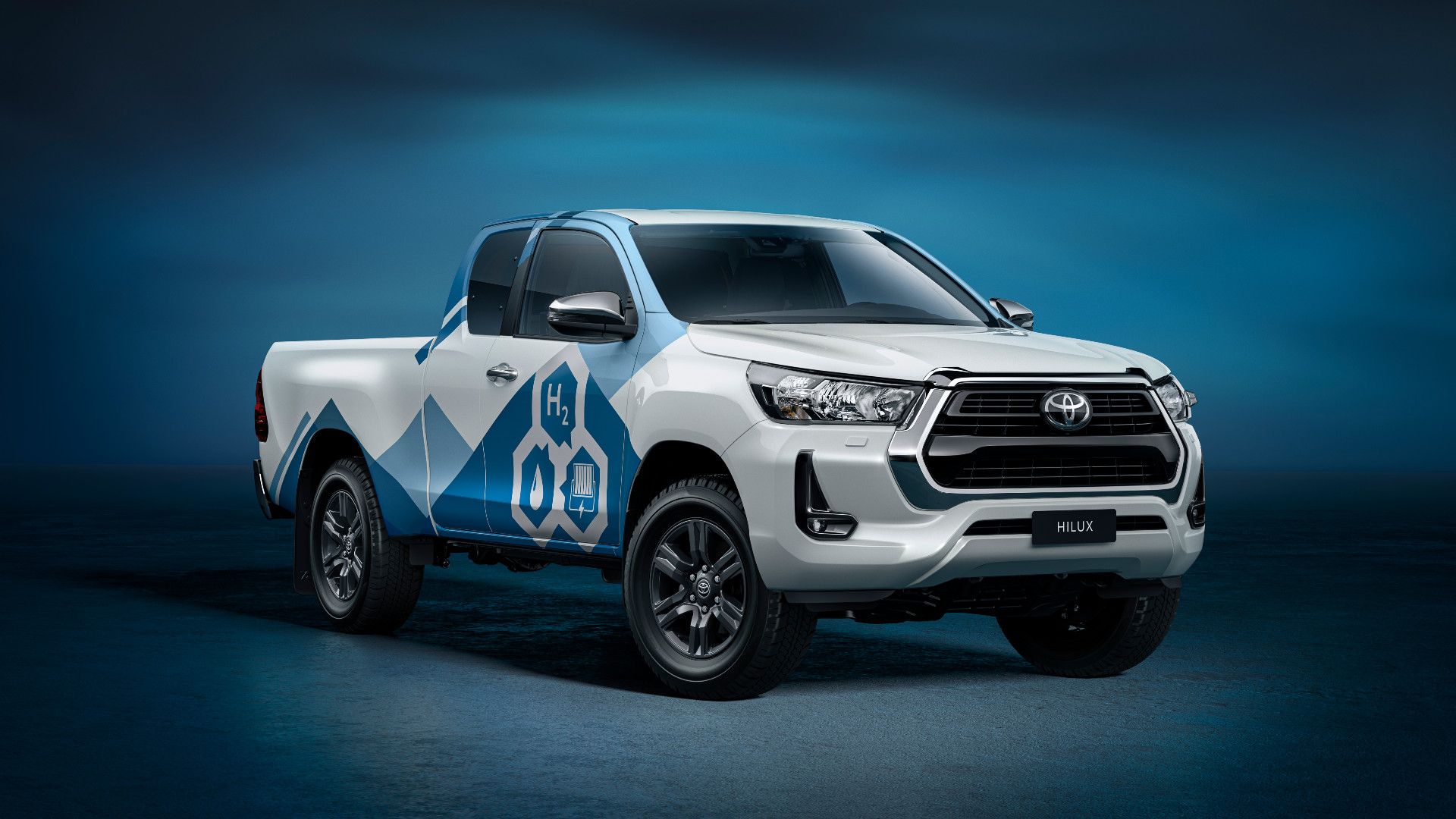
Why Are Hydrogen-Powered Vehicles Getting So Much Attention Lately?
This disruptive technology has the potential to be a game changer for the auto industry and could serve as an alternative to battery electric vehicles
1 BMW iX5 Hydrogen
BMW Blazes The Hydrogen Trail
Since the 2000s, BMW has blazed a trail in hydrogen fuel cell technology despite limitations. The iX5 Hydrogen stands as a testament to BMW’s vision. This hydrogen-powered SUV boasts a 313-mile range, effectively addressing range anxiety. Moreover, its rapid refueling time of 3-4 minutes rivals that of gasoline vehicles, offering a stark contrast to the lengthy charging times of battery-electric counterparts.
BMW iX5 Hydrogen Performance Specs
|
Horsepower |
401 horsepower |
|
Torque |
524 pound-feet |
|
Range |
313 miles |
|
0-60 MPH |
6.0 seconds |
(Specs sourced from BMW)
Performance isn’t compromised either, with the electric motor delivering a thrilling 401 horsepower. BMW is using the iX5 Hydrogen as a real-world laboratory, collecting crucial data on fuel cell vehicle (FCV) usage and driving the growth of hydrogen infrastructure. The pilot program aims to spur investment in hydrogen refueling stations and production facilities, paving the way for wider adoption of FCVs.
2 Hyundai N Vision 74
A Blast From The Past Throttling Into The Future
There’s a lot to unravel for us to bask in the “potential” awe-inspiring glory of the Hyundai N Vision 74. It’s not just the N brand’s debut hydrogen hybrid lab on wheels; it’s a rolling tribute to the classic 1974 Pony Coupe Concept, designed by none other than the legendary Italian car designer Giorgetto Giugiaro himself.
Hyundai N Vision 74 Specs
|
Acceleration (0-60 mph) |
Under 4 seconds |
|
Top Speed |
Over 115 mph |
|
Driving Range |
Over 372 miles |
|
Charging Time (800V) |
5 minutes |
(Specs sourced from Hyundai)
With over 671 horsepower (combined) and 664 pound-feet of torque, this futuristic beast has the ability to forge a path into a bold and sustainable tomorrow. Even though the original Pony Coupe never made it to production, the mere fact that Hyundai is daring to dream big with the N Vision 74 has us on the edge of our seats.
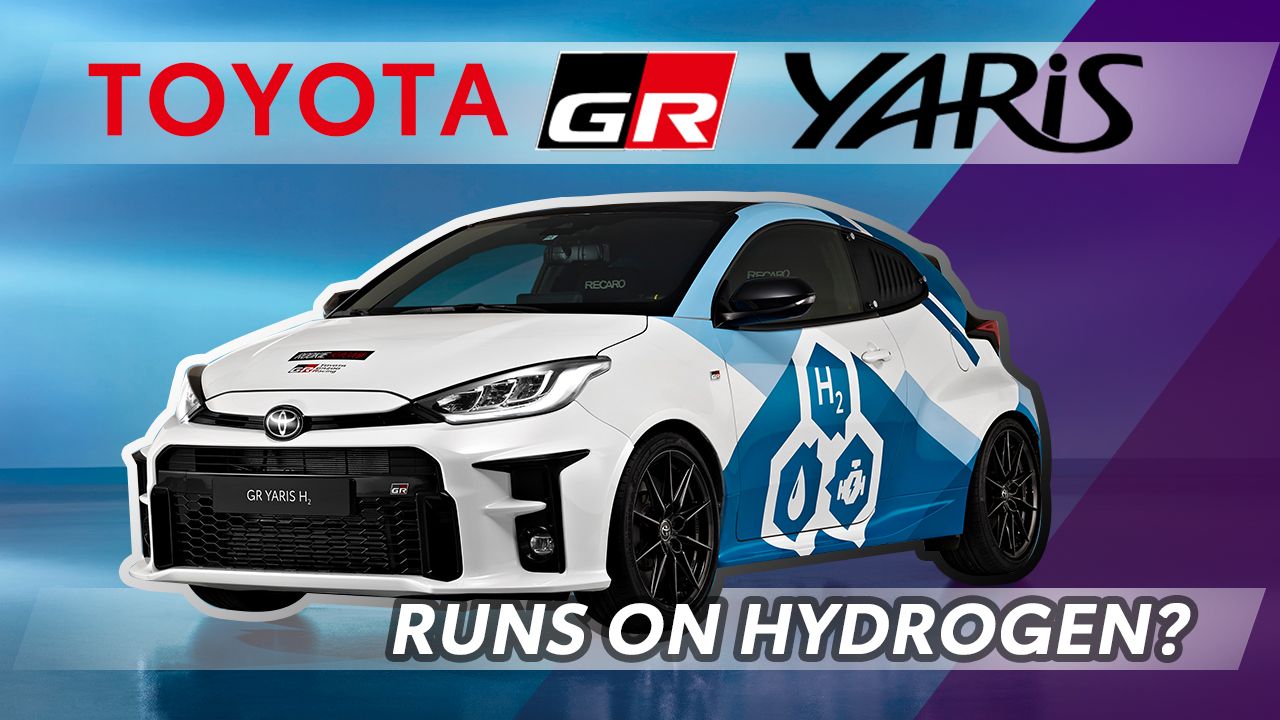
This Hydrogen-Powered Toyota GR Yaris Is Proof That Combustion Engines Can Be Eco-Friendly
Because in order to solve climate change, we shouldn’t rely solely on electric vehicles
3 Toyota GR Yaris H2
Setting The Rally Stage For Hydrogen Combustion
Toyota took the automotive world by storm in December 2021 with the unveiling of the GR Yaris H2. This innovative rally car marked a significant step forward in hydrogen combustion technology, offering a unique alternative to fuel-cell electric vehicles. Despite the excitement, Toyota remains tight-lipped about specific performance figures like horsepower and range, leaving the world in anticipation.
Key Details
-
Rally-proven platform
: The GR Yaris H2 builds upon the highly acclaimed
GR Yaris
platform, renowned for its performance and agility. -
Hydrogen combustion engine
: Unlike Toyota’s Mirai, which uses hydrogen fuel cells, the
GR Yaris H2 burns hydrogen directly
in its modified 1.6-liter turbocharged engine. -
Impressive power potential
: Though exact figures remain undisclosed, the adaptable system offers horsepower ranging from the standard GR Yaris’ 257 to a staggering 741, while retaining the original crankshaft and pistons. -
Star-studded test drive
: Adding to the excitement, iconic actor Rowan Atkinson put the GR Yaris H2 through its paces at the Ypres Rally in 2022.
4 Honda CR-V FCEV
The CR-V Gets A Hydrogen Boost
Since 2008, Honda has diligently pursued hydrogen technology, and the 2025 CR-V Hydrogen represents a potential turning point in their strategy. This innovative iteration takes a significant step away from its predecessor, the Clarity Fuel Cell, by integrating a battery pack alongside the fuel cell system. This unlocks bidirectional charging capabilities, allowing the CR-V Hydrogen to function not only as a vehicle but also as a versatile backup power source, significantly expanding its potential uses.
The Honda CR-V Hydrogen Is Coming Soon
- Honda CR-V Hydrogen is coming soon, release date later this year.
- Limited information is available, details on battery and tank size are unknown.
- True driving range and bidirectional charging effectiveness are unclear.
-
To be available in the U.S. and Japan, competing with Toyota Mirai and
Hyundai Nexo
.
5 2024 Hyundai Nexo
A Feature-Packed Hydrogen SUV
The Hyundai Nexo is a hydrogen-powered fuel cell electric vehicle (FCEV) that stands out for its unique technology and futuristic design. Introduced in 2018, the Nexo has undergone continuous improvement, and the 2024 model boasts a range of innovative features and impressive performance.
2024 Hyundai Nexo Specs
|
Engine |
Hydrogen-Powered Permanent Magnet Electric Motor |
|
Horsepower |
161 horsepower |
|
Torque |
291 pound-feet of torque |
|
Range |
354 Miles – 380 Miles |
|
Transmission |
Single-Speed Reduction Gear |
|
Drivetrain |
FWD |
|
MSRP |
From $60,135 |
(Specs sourced from Hyundai)
One of the most notable aspects of the Nexo is its hydrogen fuel cell powertrain. This clean and efficient technology offers an impressive range of 354 to 380 miles on a single fill. Beyond its eco-friendly credentials, the Nexo impresses with its technology and comfort features.
The spacious interior boasts a standard 12.3-inch infotainment screen and a 10.25-inch digital instrument cluster, providing a driver-centric and user-friendly experience. Additionally, the Nexo comes equipped with Hyundai’s SmartSense driver-assistance suite.
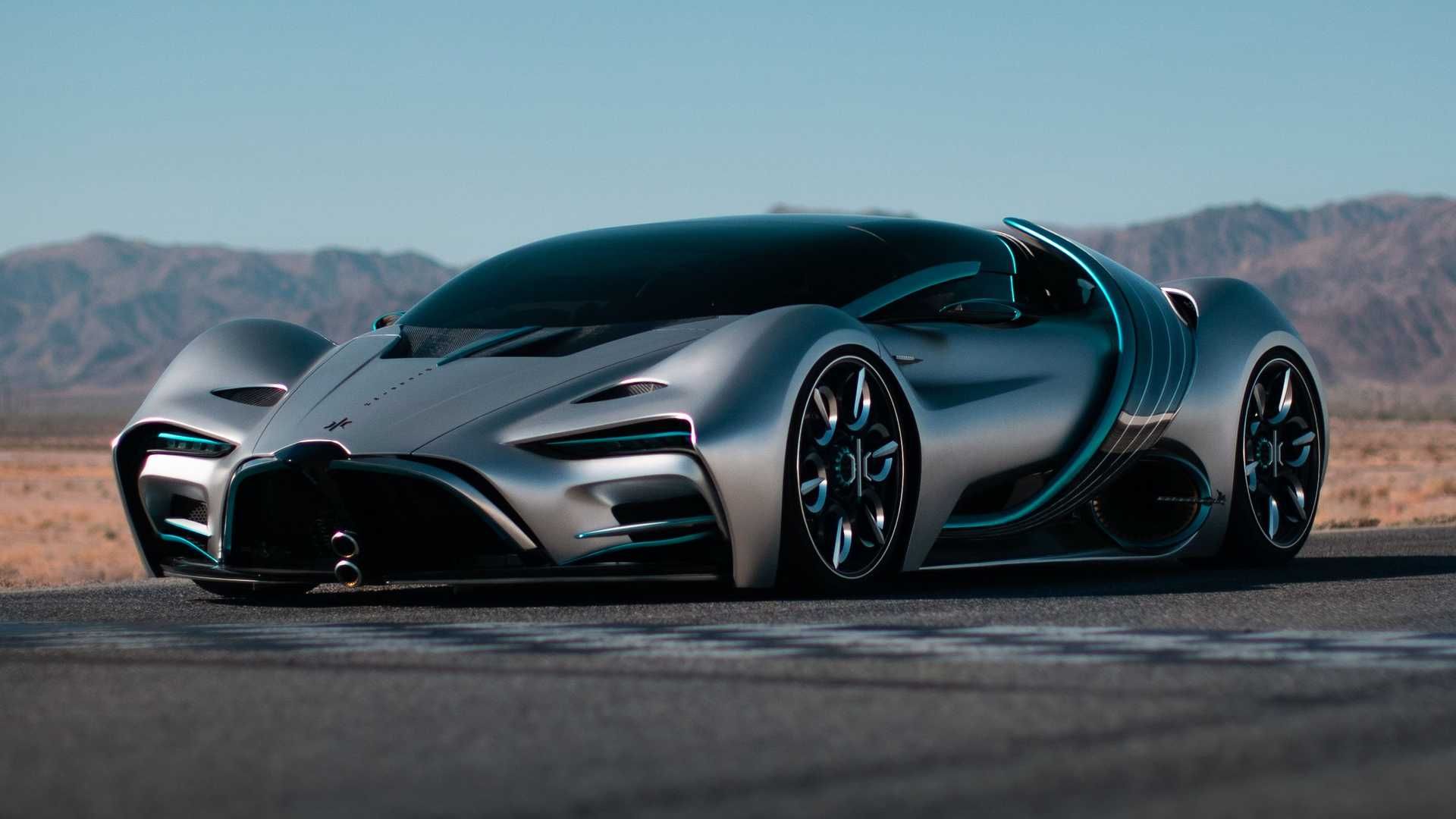
Hyperion XP-1: Everything We Know So Far
With over 2,000 horsepower and 1,000 miles of range, the Hyperion XP-1 paints a near-ideal image of hydrogen fuel-cell technology.
6 Hyperion XP-1
A Sci-Fi Supercar
The Hyperion XP-1, unveiled in August 2020 by American automaker Hyperion Motors, generated significant global interest for its unique design and hydrogen fuel cell technology. Touted as a game-changer in the automotive landscape, the XP-1 made its public debut at the 2022 Los Angeles Auto Show, where its V-doors, low-profile design, and extensive use of glass sparked comparisons to extraterrestrial creations.
Hyperion XP-1 Performance Specs
|
Engine |
Hydrogen fuel cell with supercapacitors and four electric motors |
|
Horsepower |
2,038 horsepower |
|
Acceleration (0-60 mph) |
2.25 seconds |
|
Top Speed |
221 mph |
(Specs sourced from Hyperion)
Boasting cutting-edge technology, the XP-1’s engine module extends beyond a high-power fuel cell, incorporating futuristic hydrogen storage technology from NASA. Hyperion intends to produce only 300 units of the XP-1. The firm is already accepting custom orders on its website.
7 Toyota Hilux Hydrogen
A Glimpse Shrouded In Mystery
Toyota’s hydrogen Hilux prototype remains a fascinating glimpse into the future of zero-emission pickups, but concrete information remains scarce. The prototype aimed to test the feasibility of adapting second-generation fuel cell technology from the Mirai sedan into a rugged truck platform. Funded by the UK government, the project targeted limited production in 2023. However, there is no update on progress and potential release.
Specs Still Under Wraps
- Prototype specifications and performance details are not yet available.
- Initial projections suggest all-wheel drive, decent power/torque, and long-range similar to the Mirai (402 miles).
- Concrete information lacking, but the prototype generates interest in clean, powerful pickup trucks.
-
Toyota’s commitment to alternative fuels is shown in other prototypes such as the
Hydrogen HiAce, which is undergoing testing in Australia
.
8 NamX HUV
Revolutionizing The Hydrogen Driving Experience
In a world where big automotive manufacturers are exploring hydrogen concept cars, the NamX has embarked on a mission to revolutionize the driving experience. Coming from the design house of Pininfarina, it utilizes a permanent H2 tank and a removable setup of six capsules.
Pininfarina-NamX HUX Performance Specs
|
Base Model |
GTH Trim |
|
|
Horsepower |
300 hp |
500 hp |
|
TopSpeed |
124 mph (200 km/h) |
155 mph (250 km/h) |
|
0-60 mph (0-100 km/h) |
6.5 seconds |
4.5 seconds |
(Specs sourced from NamX)
With this patented technology, the NamX HUV can increase the adoption of hydrogen vehicles significantly. This could be further bolstered by NamX’s plans for home capsule delivery and new hydrogen capsule refueling stations, which will mitigate the concern of limited refueling options.
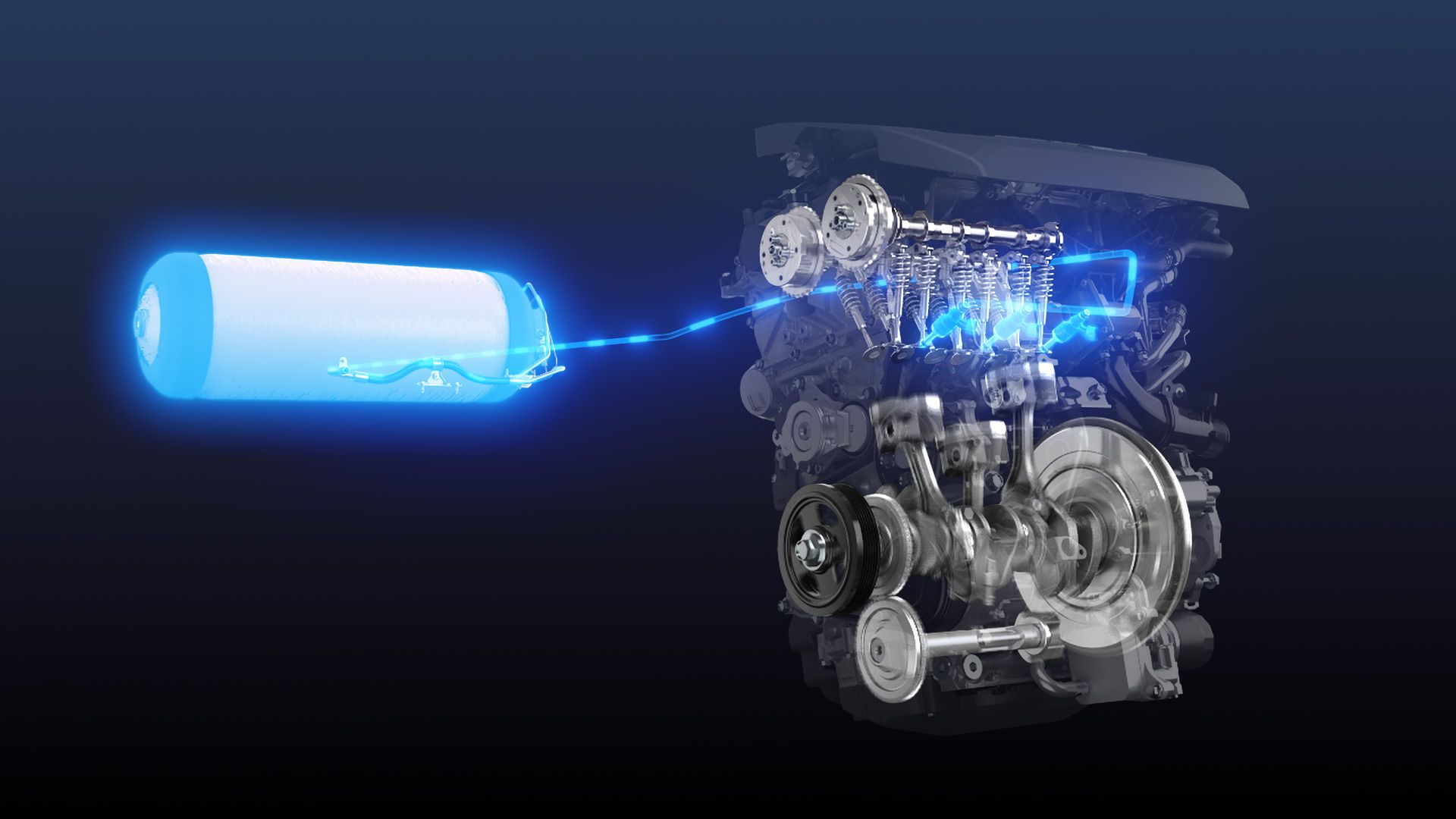
10 Companies Deeply Invested In Hydrogen Combustion Engines
With the ever advancing movement towards a totally sustainable transportation future, hydrogen has risen as a very viable alternative to batteries.
9 Land Rover Defender FCEV
A Glimpse Into Hydrogen-Powered Off-Road Adventure
Jaguar Land Rover has set a target to achieve zero tailpipe emissions by 2036. In pursuit of this goal, the company is exploring various prototype programs, one of which is Project Zeus. This initiative centers around the development of a hydrogen fuel cell vehicle based on the Land Rover Defender SUV.
Defender FCEV Prototype Specs
|
Fuel Cell |
90 kW |
|
High-output Battery |
Around 300 kW from Delta Motorsport |
|
Electric Motors |
2 x 147 kW |
|
Battery Capacity |
16.7 kWh |
|
Hydrogen Tank |
“High-pressure” (details unknown) |
|
Additional Components |
Electric drive units, fuel cell stack, energy recuperation battery |
(Specs sourced from Jaguar Land Rover)
To make this program a success, Jaguar Land Rover has received partial funding from the Advanced Propulsion Center, a government-backed organization promoting the UK’s low-carbon automotive industry.
Additionally, the company has partnered with some of the world’s most renowned research and development partners, including AVL, Delta Motorsports, and Marelli Automotive Systems, to develop this vehicle. However, it is not yet clear when Land Rover Defender FCEV will be ready for public use.
10 Riversimple Rasa
A Hydrogen Dream But Not Yet A Reality
Here’s a concept car that can travel 300 miles on just 1.5 kg of hydrogen. Take a moment to let that sink in (on average, 1 kg of hydrogen can provide a hydrogen car with a range of approximately 60-80 miles). The responsive and fun-to-drive Rasa can reach zero-to-60 MPH in 9.7 seconds. The car utilizes a unique ultracapacitor system, contributing to its exceptional energy storage and efficiency.
Riversimple Rasa Performance Specs
|
Top Speed |
60mph |
|
0-60 MPH |
Under 10 seconds |
|
Range |
300 miles |
(Specs sourced from Riversimple)
First unveiled at the 2016 London Motor Show, the two-seater Riversimple generated significant interest. Even the King of the United Kingdom, Charles III, took it for a test drive on his visit to Wales. Production was slated for 2023 with a target of 5,000 units annually. However, there is no concrete information on availability, with only a waiting list currently offered by the company.
11 Alpine A4810 Concept
A Hydrogen Hypercar Dream
Forget Ferrari, forget Lamborghini, the Alpine A4810 is a French-born hypercar with its sights set on the future. This hydrogen-powered dream machine blends sleek, F1-inspired design with cutting-edge technology, blurring the lines between concept and reality. Born from the minds of design students and nurtured by Alpine’s F1 expertise, the A4810 is more than just a pretty face.
From F1 To Hydrogen Future
- Renault’s A4810 concept car signals a commitment to hydrogen power.
- Paves the way for eco-friendly performance cars of the future.
- Performance figures are undisclosed, but Alpine’s racing experience suggests high capabilities.
- Inspired by Mont Blanc, the A4810 aims to reach new heights.
-
Looking ahead, the company says that
it might produce this car or its variation in limited numbers
.
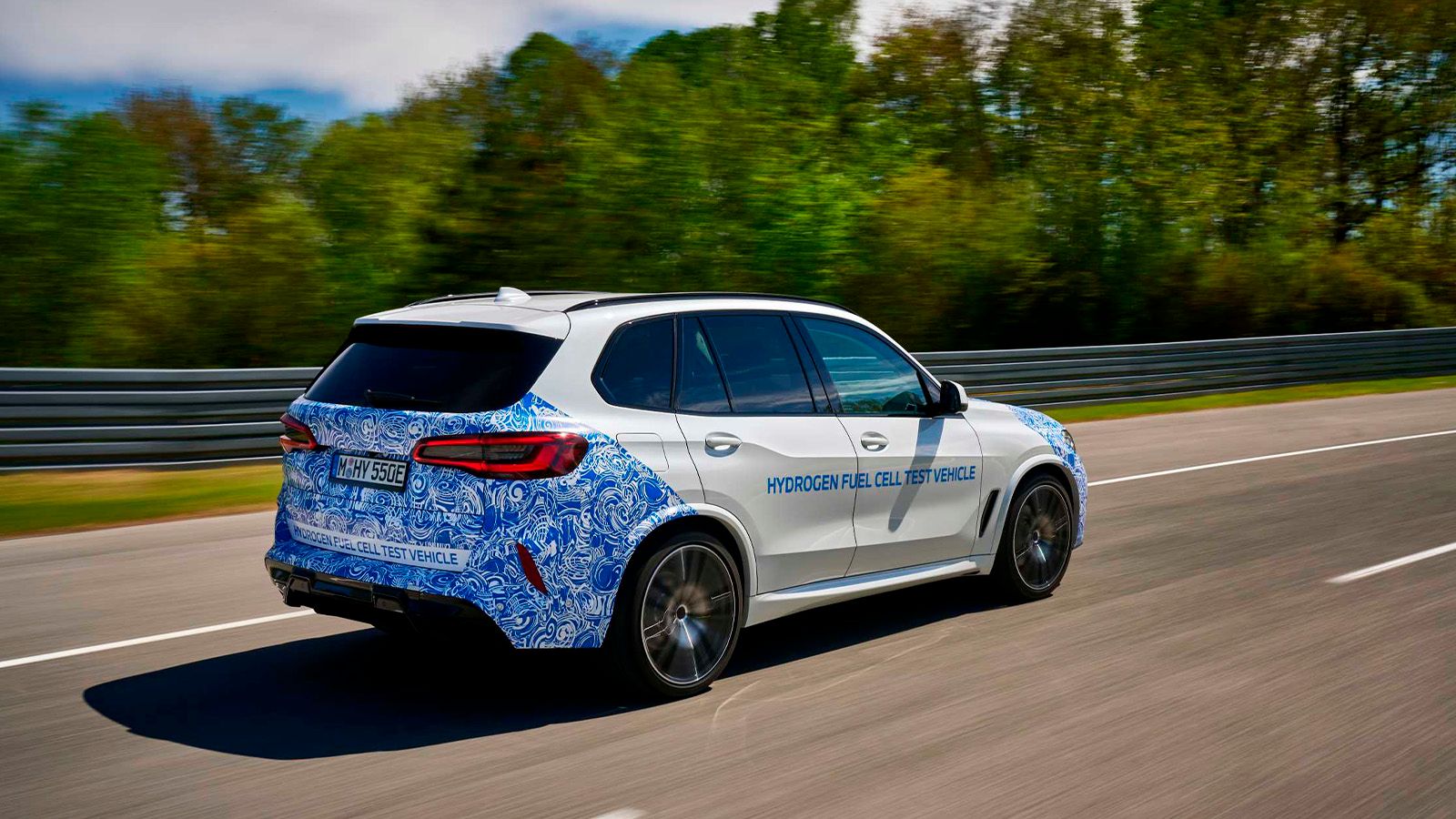
Why Hydrogen Cars Are The Next Wave Of Clean Mobility
As a series of hydrogen vehicles prepare to hit the auto market, they plan to reimagine the green future of driving.
12 H2X Warrego
Conquering Tough Terrains With Hydrogen
The H2X Warrego is a full-blown hydrogen fuel truck. The Australia-based automotive company that specializes in zero-emission vehicles, especially hydrogen fuel cell electric vehicles are the experts in manufacturing trucks and vans. The company claims that the Warrego was designed to rule tough terrains. It is expected to serve construction sites, mining locations, and similar challenging environments.
H2X Warrego Performance Specs
|
Horsepower |
349 horsepower |
|
Range |
248.5 miles |
|
Top Speed |
81 MPH |
|
0-60 MPH |
8.1 seconds |
(Specs sourced from H2X)
The rugged truck is built around an award-winning frame that can help the driver maneuver without any worries about damaging the vehicle. H2X has immediate plans to make the Warrego available in Europe. The company is yet to reveal its plans to make it available in the U.S.
13 Renault Scenic Vision
Sustainability Meets Futuristic Tech
The Scenic Vision concept car isn’t just a glimpse into Renault’s design prowess; it embodies the company’s commitment to a sustainable future. This “electric powertrain concept car with hydrogen range extender” prioritizes accessibility and serves the driver in every way imaginable.
Renault Scenic Vision Powertrain Specs
|
Powertrain |
160 kW wound-rotor synchronous electric motor |
|
Battery |
40 kWh recyclable battery |
|
Range extender |
16 kW fuel cell |
|
Range |
Over 800 km |
|
Fuel |
Green hydrogen |
|
Fueling time |
5 minutes |
(Specs sourced from Renault)
The Scenic Vision’s focus on accessibility is also evident in the spacious and adaptable cockpit. A large screen sits prominently in the center, maximizing visibility thanks to a 24-percent larger windshield. Facial recognition technology enhances convenience, while the innovative removal of the B-pillar and body-adaptive seats create a seamless and personalized driving experience.
To top it off, the dichroic surfaces within the interior come alive with vibrant colors when bathed in light, adding a touch of whimsy to the futuristic design.
14 Forze IX
A Hydrogen Racing Revolution
The Forze IX, developed by the Dutch racing team Forze Hydrogen Racing, represents a significant advancement in hydrogen-electric vehicle technology. For nearly three years, the team meticulously crafted this innovative race car, culminating in its title as the world’s fastest hydrogen race car.
Forze IX Performance Specs
|
Powertrain |
Supercapacitor accumulator, two independent EKPO fuel cell systems |
|
Top speed |
186.5 mph (300 km/h) |
|
Acceleration (0-60 mph) |
Less than 3 seconds |
(Specs sourced from Forze Hydrogen Racing)
Beyond its speed, the Forze IX serves as a testament to the potential of hydrogen fuel cell technology in motorsports. The team’s ambition extends beyond championship titles, as they aim to use their expertise to push the boundaries of hydrogen-electric vehicles and challenge established players in the racing world. Their future goals include competing against high-performance marques like Porsche and Lamborghini in the GT Class of the Supercar Challenge.
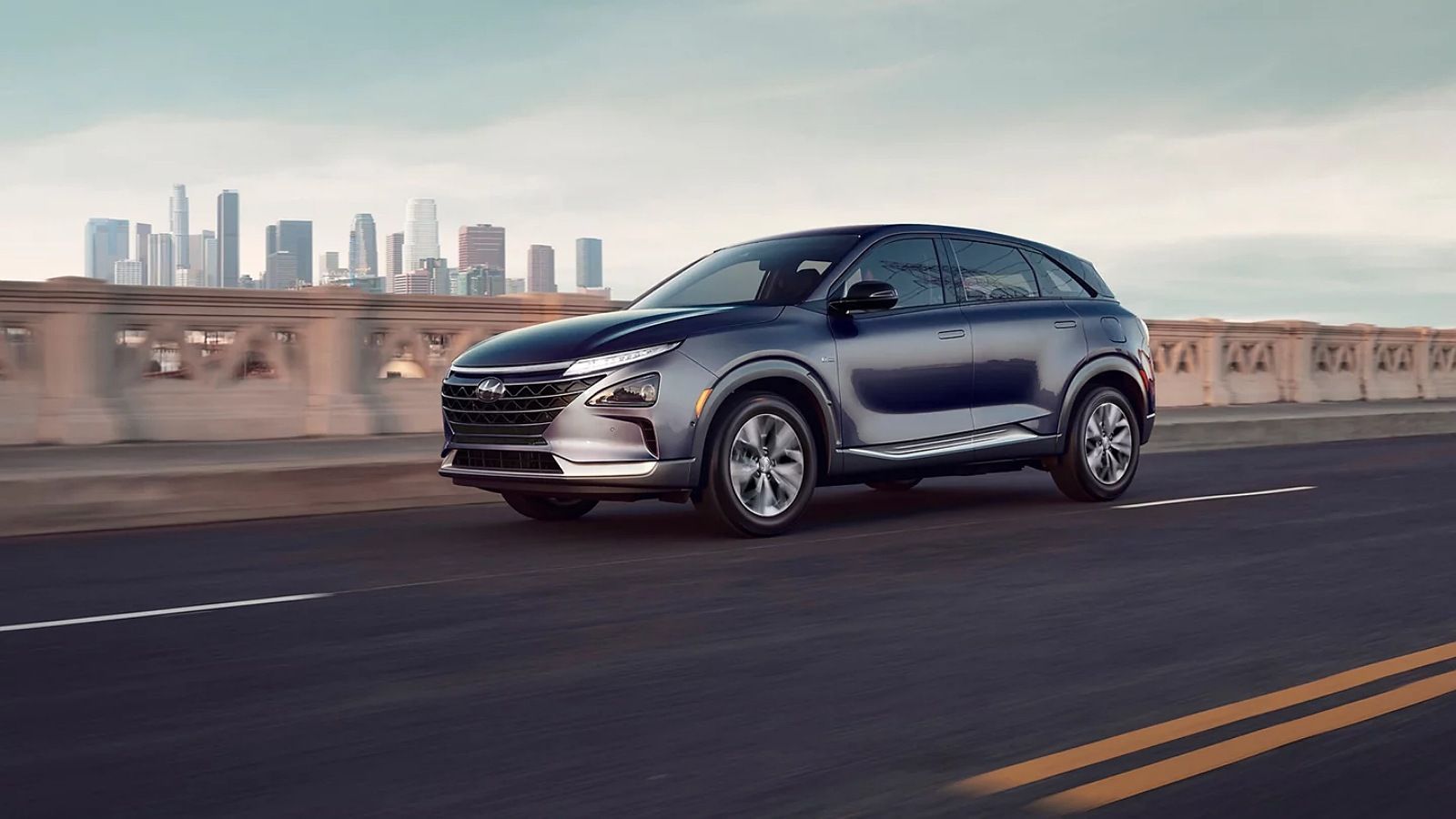
5 Reasons Why Hydrogen Cars May Never Overtake EVs (And 5 Reasons Why They Could)
This healthy competition could ultimately drive the innovation that will benefit consumers constantly seeking eco-friendly transportation options.
15 Audi h-tron Quattro
A Vision Of Sustainable Performance
Electric vehicles, gasoline-powered vehicles, race cars, supercars, no matter the department, there is always an Audi to compete with the others. The German automotive manufacturer has been at the forefront of car development for ages and their h-tron Quattro concept is a testament to the same. Audi revealed the h-tron Quattro uses the fifth generation of fuel cell technology and lighter-weight materials.
Audi h-tron Quattro Specs
|
Power Output |
Up to 110 kW |
|
Driving Range |
Up to 373 miles |
|
Drag Coefficient |
0.27 |
(Specs sourced from Audi)
